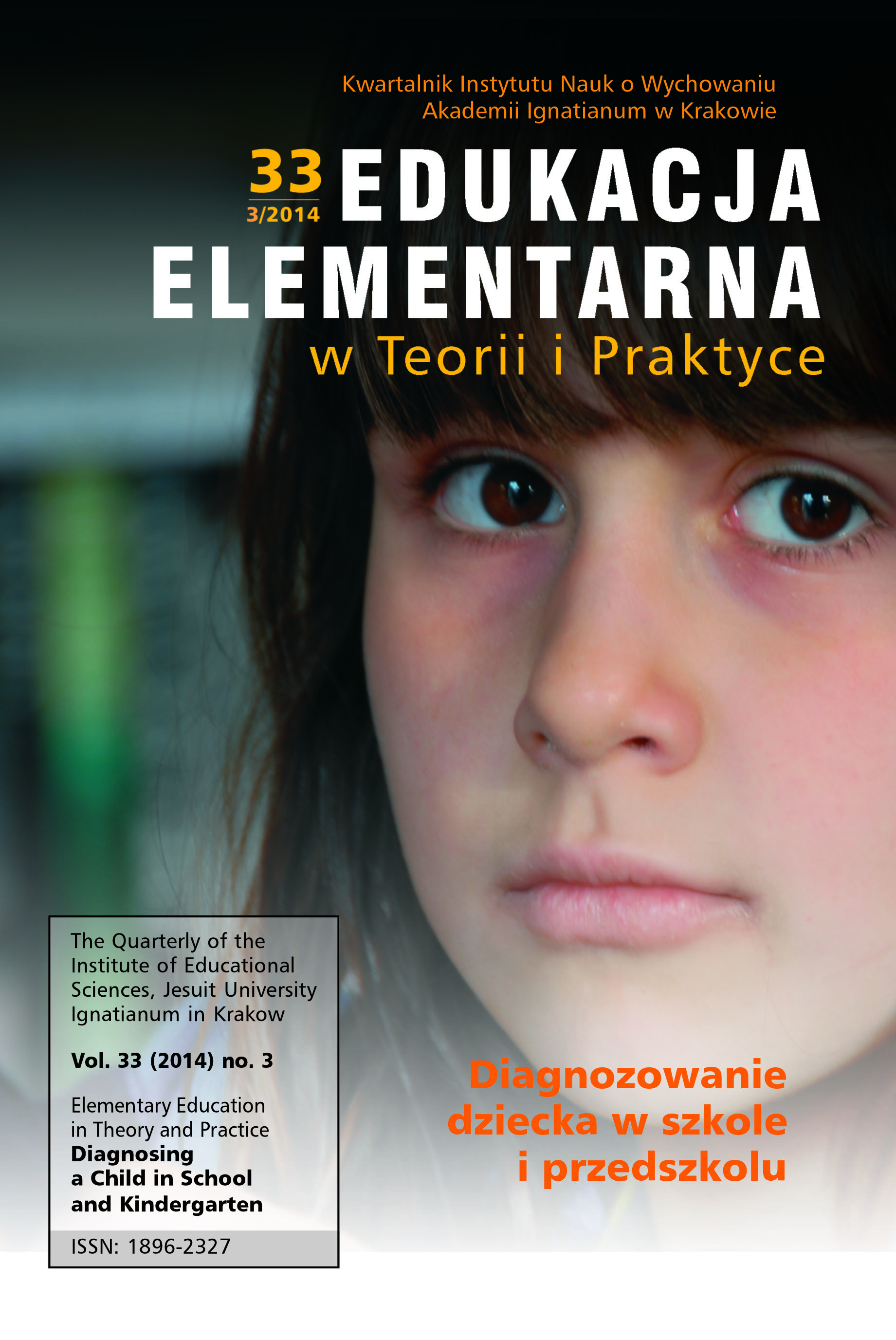„Doniesienie z pola walki” – doświadczenia z diagnozowania gotowości szkolnej dzieci
“Report from the Battlefield” – Experiments in Diagnosing Children’s School Readiness
Author(s): Magdalena ChristSubject(s): Social Sciences, Education
Published by: Uniwersytet Ignatianum w Krakowie
Keywords: diagnosis; school readiness; nursery education; early school education; 6-year-old at school; psychological and pedagogical counselling centre;pedagogical research;
Summary/Abstract: This article focuses on the currently highly topical issue of the assessment of children’s readiness for schooling. The process by which a child arrives at the level of maturity required to commence schooling is an extremely complicated one. If there are indications that the child is not yet ready to start their school career, then a diagnostic assessment of their strengths and weaknesses in all possible areas should be carried out. On this basis it is possible to take steps to ensure that the child compensates for any gaps in their competencies, and one may consider delaying the implementation of compulsory education. The starting point for this text is an inner need to share the author’s experiences and reflections about the above topic. In the second half of the school year 2013/2014, our psychological and pedagogical consulting service experienced a major surge in the number of parents who wanted their children to be examined – children who, it was expected, would be sent to school from September 2014 onwards, as required by law. Above all, these included parents of children born in the first half of 2008. In many cases, the fears of such parents turned out to be justified. However, it was also the case that seeing a pedagogue and a psychologist allowed them to prepare their preschool children more effectively for the new challenges awaiting them. This text presents the results of research into the assessment of children’sreadiness to attend schooling. It points out the particular areas in which the subjects who were assessed had difficulties. The research involved took account of knowledge and competence in respect of both large and smallscale motor skills, visual and auditory analysis, language and pronunciation, and mathematics. It also included the sphere of social-emotional competencies. The assessment of lateralization was an important point. Our research exposed numerous areas in which at least some of the children had yet to reach a state of full and proper readiness for schooling. The article aims to highlight the responsibility that those engaged in making such assessments should be seen as having, with regard to safeguarding the future well-being of the children in question.
Journal: Edukacja Elementarna w Teorii i Praktyce
- Issue Year: 9/2014
- Issue No: 3 (33)
- Page Range: 89-104
- Page Count: 16
- Language: Polish

